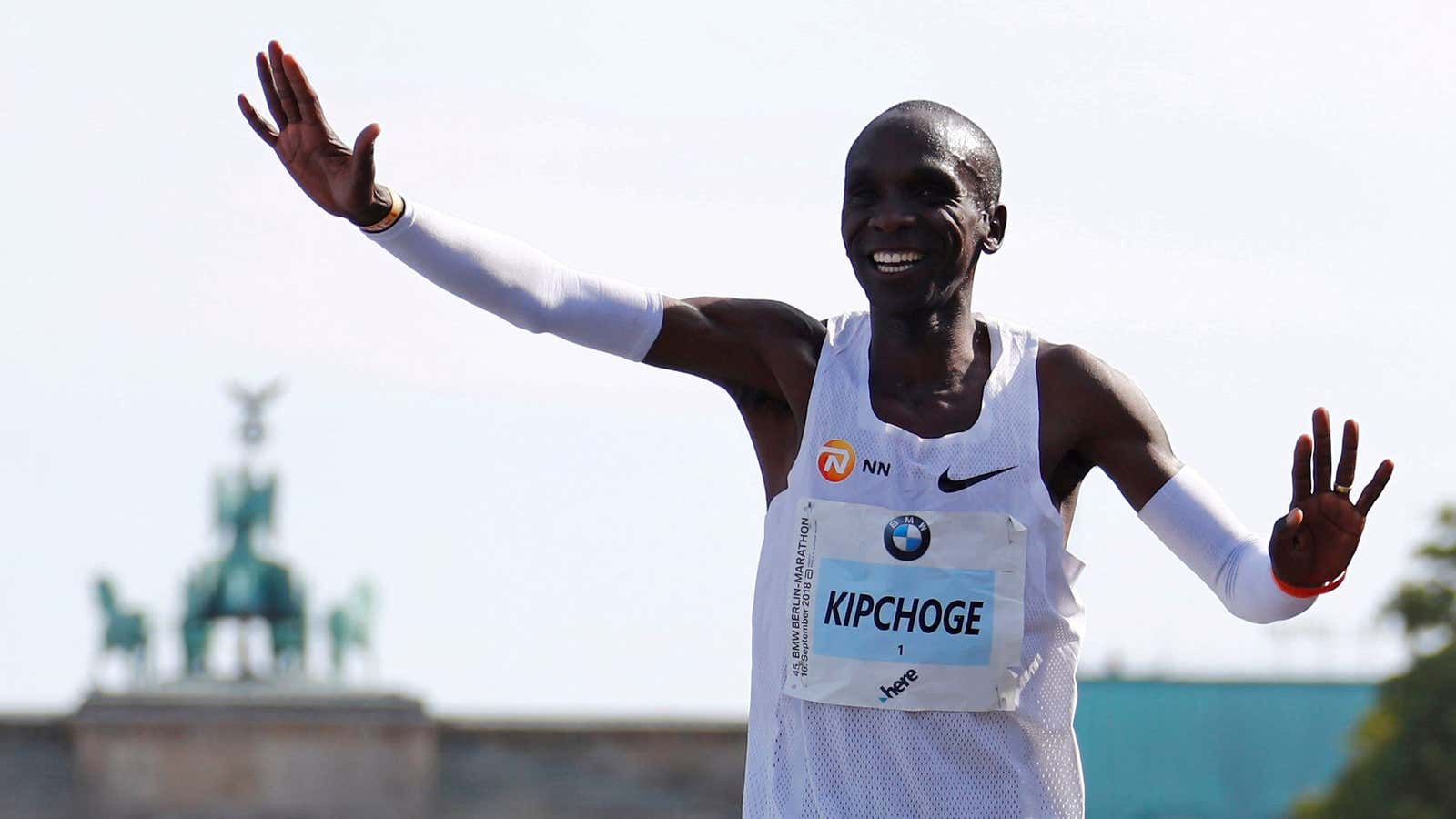Kenyan runner Eliud Kipchoge has some claim to being the greatest marathoner the world has ever seen.
At yesterday’s (Sept. 16) Berlin marathon, Kipchoge sliced 78 seconds off the sport’s male world record, taking it from 2:02:57 to 2:01:39, and closer to the sub-two-hour time often described as the event’s holy grail. It’s the largest jump in the record in over 50 years, since Australian Derek Clayton took almost two and a half minutes off the record in 1967. Clayton’s 1969 record of 2:08:33.6 seems almost doddering in comparison to Kipchoge’s recent mark.
But there’s another hurdle still to go. In order to be the official new world record, Kipchoge’s time must be ratified by the International Association of Athletics Federations. To qualify, the course must be precisely 42.195 kilometers long (26.218 miles), as measured by a calibrated bicycle, and meet a variety of criteria including downhill slope and the distance between the race’s start and finish points. Many courses thought to be world-class are nonetheless ineligible for world record consideration, including the Boston Marathon.
Since 2002, the Berlin marathon has been the site of six new marathon records, bringing the winning time down gradually from 2:04:55 to 2:02:57, the time set by Kenyan Dennis Kimetto in 2014. Most new records have been no more than 30 seconds faster than the previous time.
“I had a great belief that I would run a world record,” Kipchoge told broadcasters yesterday. “But I didn’t know I’d run 2:01.”
To put his final time in context, think of it this way: Kipchoge ran a blistering four-minute, 38-second mile—26 times in a row. Only three Americans have run a half-marathon faster than Kipchoge’s second-half split.
Kipchoge’s 2:01:39 isn’t even the fastest he’s run the race: On a Nike-devised course in 2017, Kipchoge ran the marathon in 2:00:25. (An alternating cast of non-competing elite runners helping to set the pace made the race ineligible for the world record.)
Athletics fans may now wonder whether the two-hour time is finally within sight. A 2017 Science investigation concluded that, short of illegal doping or an all-downhill course, the best shot may be in making runners more efficient. It won’t be one major advance, Nike spokesperson and researcher Yannis Pitsiladis told the magazine, but across many small ones: springier shoes, better hydration, and encouraging elite East African runners to optimize their training with technology and diet. (Kipchoge eats the same “normal Kenyan food” he has always done, and says the most important shift is a mental one.)
With enough funding, Pitsiladis said, the record might be broken as soon as 2020: “I have no doubt whatsoever that this will be done.”
